Suan Dusit University (SDU) demonstrates its commitment as a Partnership for the Goals institution through its active engagement in policy collaboration, multi-stakeholder partnerships, and strategic cooperation with government agencies, regional non-governmental organizations (NGOs), industries, and international organizations. The university recognizes the importance of SDG 17, which emphasizes policy integration, knowledge exchange, and collective governance to achieve the Sustainable Development Goals (SDGs) across national and regional levels. SDU’s partnerships aim not only to share expertise but also to co-develop policies, strategies, and monitoring mechanisms that enhance sustainable development outcomes in Thailand.
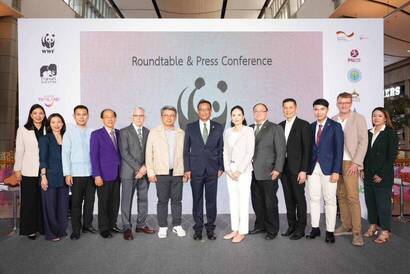
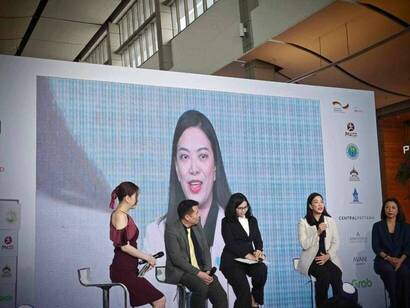
In 2024, the university played an active role in several collaborative initiatives that directly contributed to the development and implementation of SDG-related policies (direct involvement in SDG policy development). A notable example was its collaboration with the World Wide Fund for Nature (WWF-Thailand) under the campaign “TRAVEL IVORY FREE – Traveling in Thailand Without Ivory Trade 2024.” This campaign was a partnership between SDU, national agencies, and international organizations such as the Department of National Parks, Wildlife and Plant Conservation, the Tourism Authority of Thailand, the Department of Tourism, and the German International Cooperation Agency (GIZ). SDU’s School of Tourism and Hospitality designed a professional training program and produced a handbook titled “The Role of Tour Guides in Wildlife Conservation and Anti-Illegal Wildlife Trade.” This contribution represented a direct policy input to promote sustainable tourism behavior and conservation awareness, aligning with SDG 15 (Life on Land) and SDG 17 (Partnerships for the Goals) through policy-oriented education and stakeholder engagement.
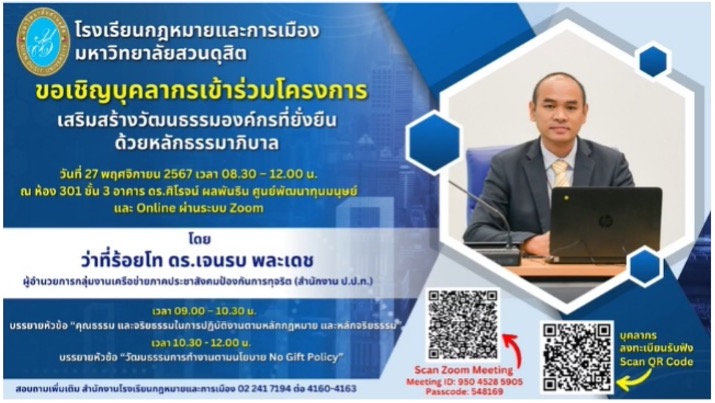
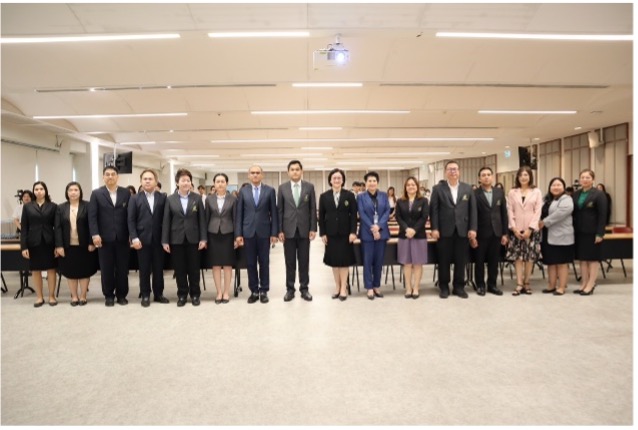
In parallel, the School of Law and Politics collaborated with the Office of the Public Sector Anti-Corruption Commission (PACC) and the Ministry of Justice to organize a project titled “Building a Sustainable Organizational Culture through Good Governance.” This initiative promoted the national No Gift Policy and ethics-based management principles within higher education institutions and public organizations. The project exemplified governance partnershipsbetween academia and the public sector aimed at strengthening institutional integrity, transparency, and anti-corruption measures, contributing directly to SDG 16 (Peace, Justice, and Strong Institutions) and SDG 17 (Governance and Policy Collaboration).
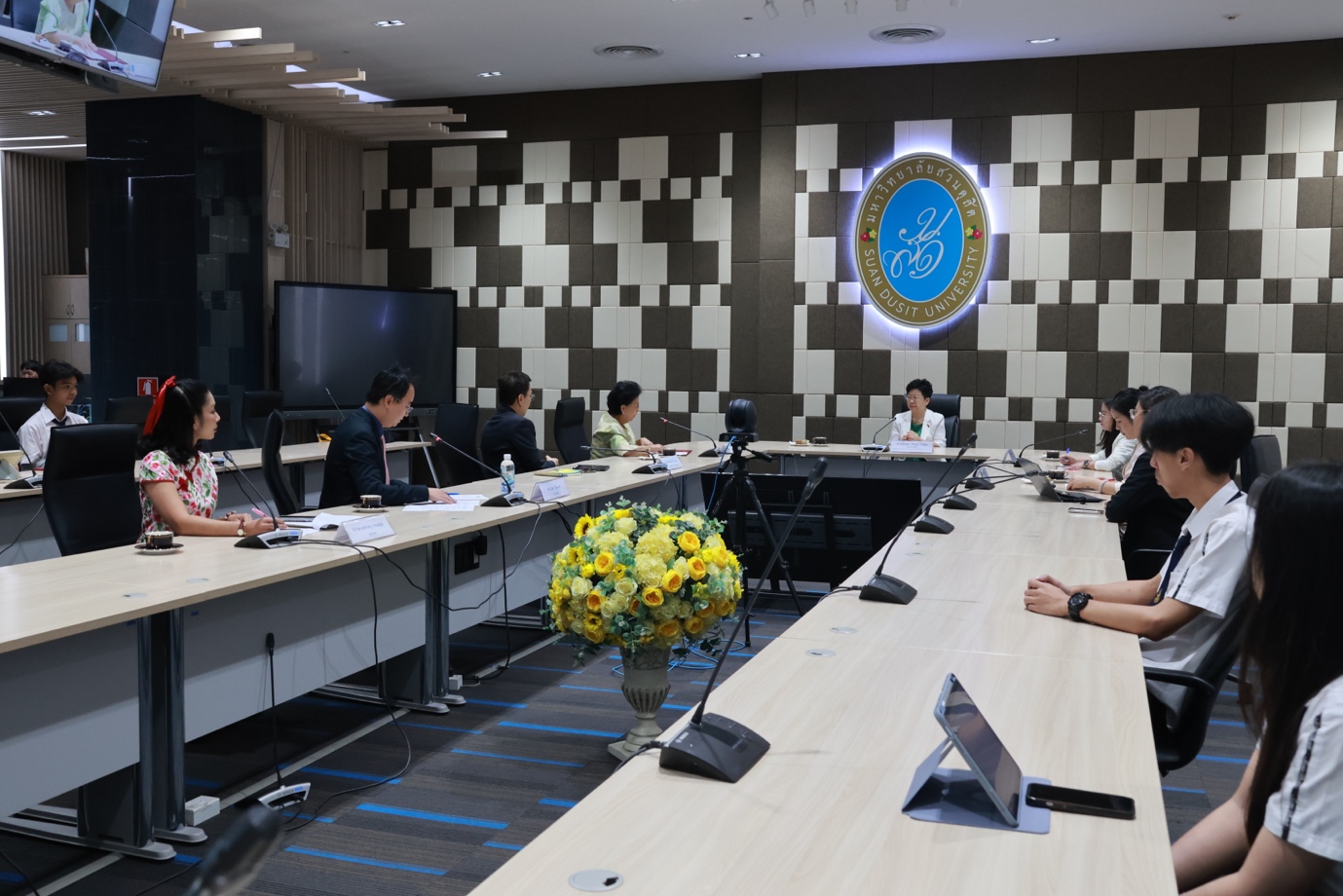
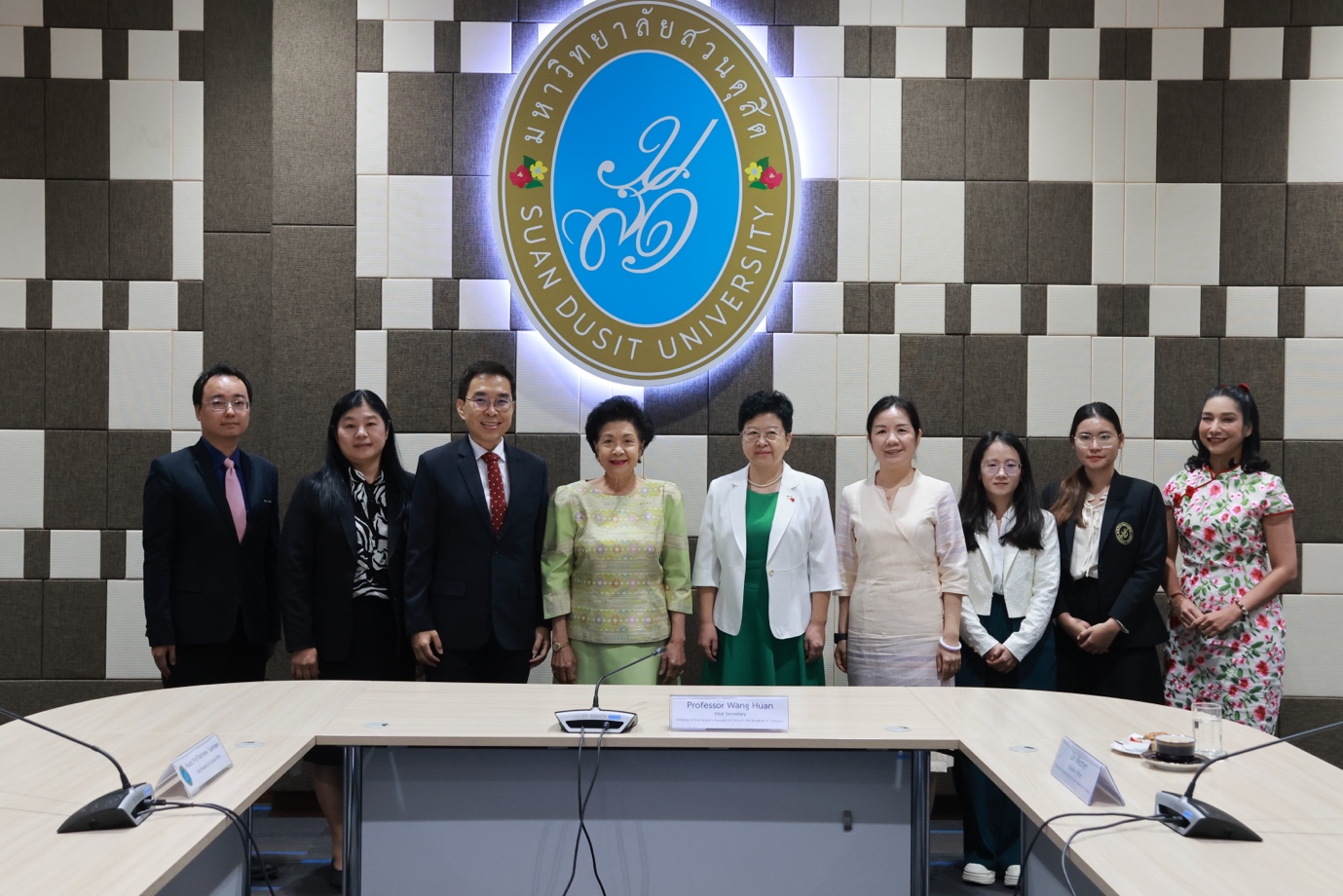
On an international scale, SDU’s Office of the Vice President for Academic Affairs and International Relations organized an academic lecture titled “Education for Sustainable Development (ESD)” delivered by Professor Wang Huan, Minister-Counsellor of the Embassy of the People’s Republic of China in Thailand. This session highlighted SDU’s role as a hub for knowledge partnerships and international policy dialogue, fostering greater understanding of ESD principles in higher education and supporting the advancement of SDG 4 (Quality Education) and SDG 17 (Global Partnerships for Education and Sustainability).
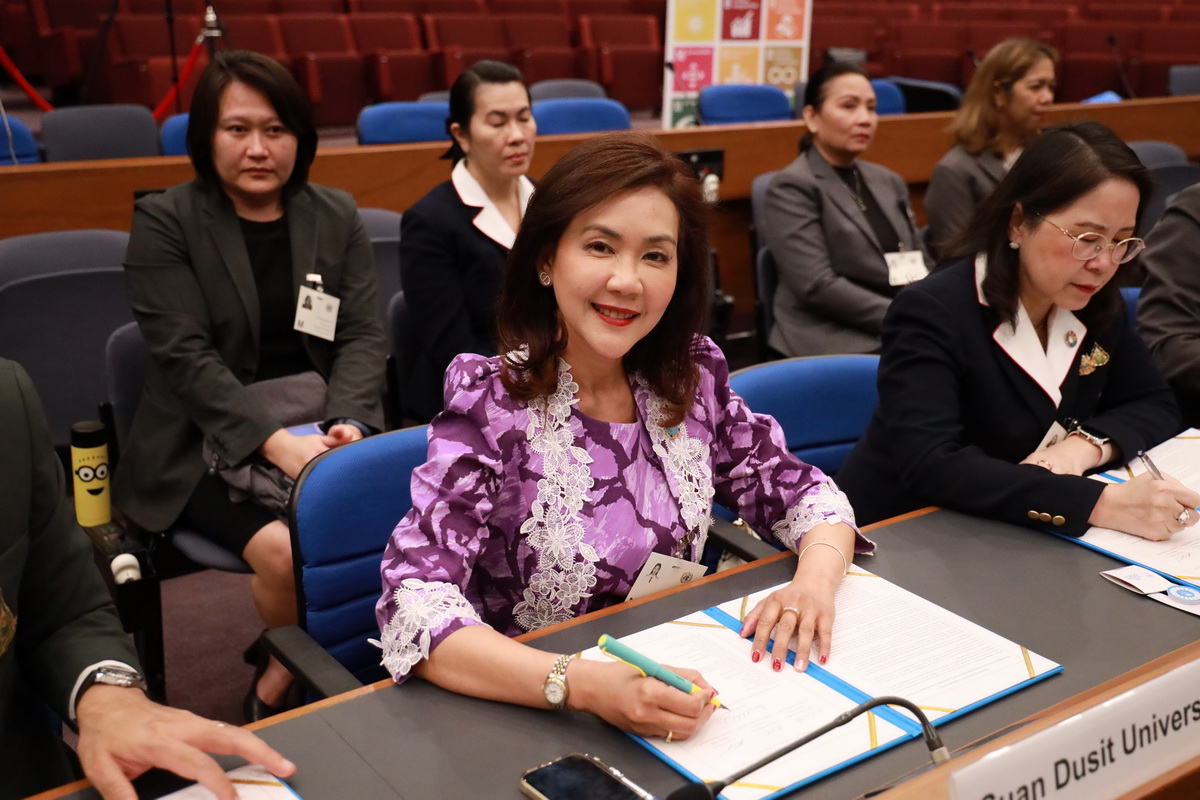
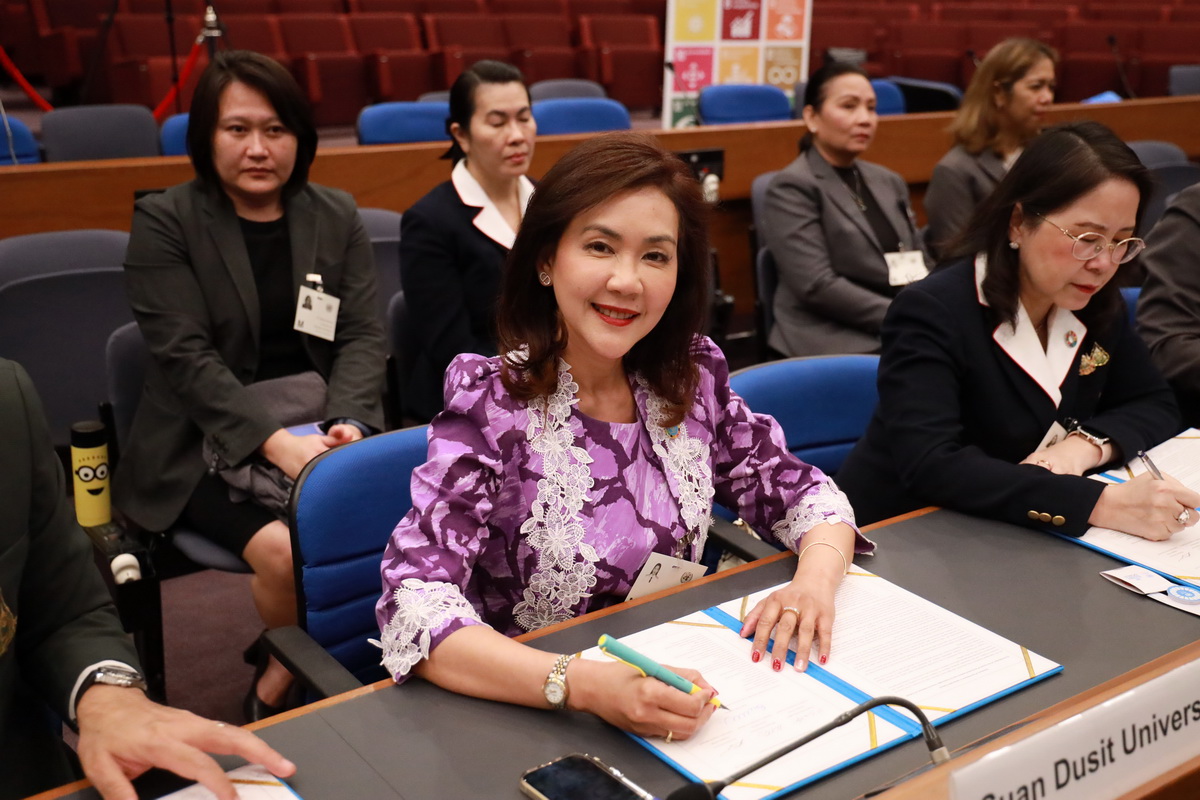
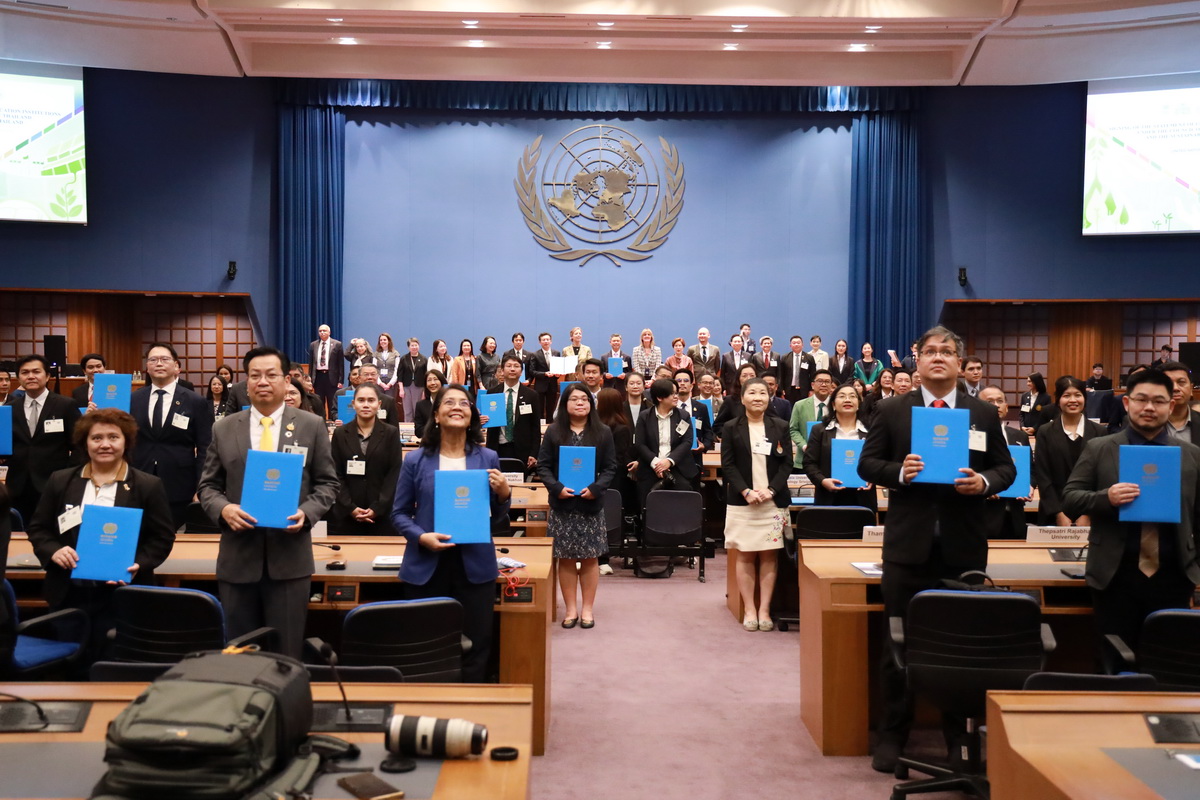
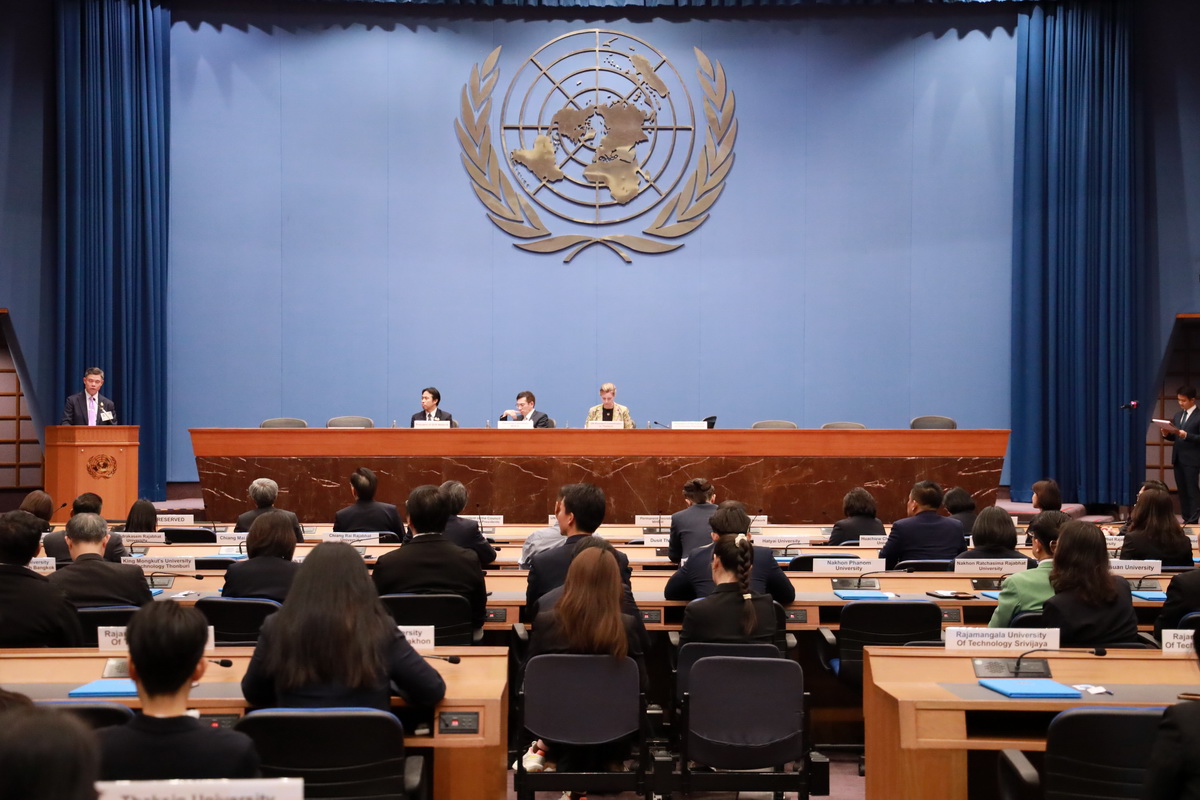
Furthermore, SDU reaffirmed its commitment to national-level SDG policy through its participation in the “Joint Declaration of Commitment for Sustainable Development” signing ceremony with the Sustainable University Network of Thailand (SUN Thailand), the Council of University Presidents of Thailand (CUPT), and the United Nations Thailand. The event, witnessed by the Permanent Secretary of the Ministry of Higher Education, Science, Research, and Innovation (MHESI), represented a collaborative governance mechanism for advancing Thailand’s SDG implementation through the higher education sector. This engagement exemplifies SDU’s direct involvement in multi-level partnership policy frameworks for national SDG development.
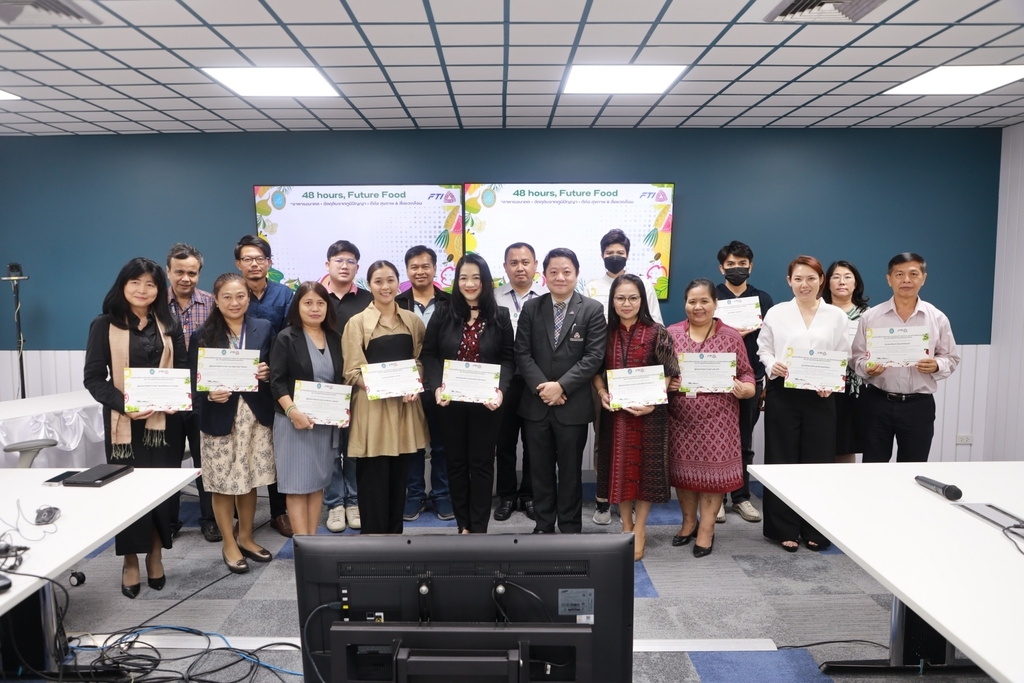
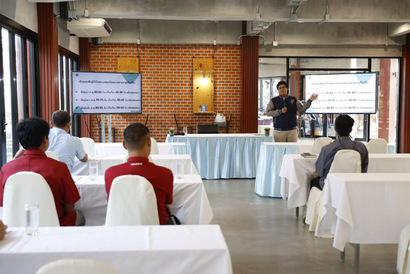
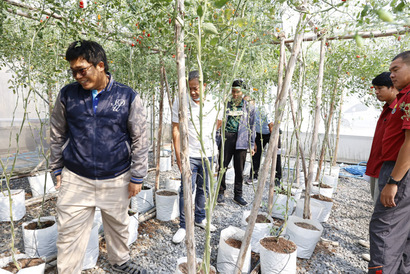
At the regional and industrial levels, SDU’s Research and Development Institute and the Faculty of Management Science collaborated with the Federation of Thai Industries (FTI) and the Suphanburi Provincial Industrial Councilto promote sustainable innovation and community-based development. The joint initiatives included the Short Course on Food Innovation from Local Wisdom and the Safe Agriculture Network for Sustainable Development Project. These programs emphasized capacity building, innovation policy, and sustainable agriculture under the triple helix model—linking universities, government, and industry. They served as policy-driven platforms advancing SDG 2 (Zero Hunger), SDG 9 (Industry, Innovation and Infrastructure), and SDG 17 (Partnerships for Sustainable Innovation).
Collectively, these initiatives demonstrate SDU’s strong commitment to policy-oriented engagement and its role as an active partner in public policy development for sustainable development. The university has established a clear existence of input, with verifiable evidence provided, and all documentation publicly available through official university channels. Through its inclusive and multi-sectoral partnerships, Suan Dusit University exemplifies how higher education institutions can serve as catalysts for collaborative governance, adaptive management, and policy-based sustainable development, aligning fully with the expectations of the Times Higher Education (THE) Sustainability Impact Ratings 2026 under SDG 17.2.1.
🔗 References (Publicly Available Evidence)
- Suan Dusit University. (2024). “TRAVEL IVORY FREE – Traveling in Thailand Without Ivory Trade 2024.”
https://www.dusit.ac.th/home/2024/1219044.html - Suan Dusit University. (2024). “Building a Sustainable Organizational Culture through Good Governance.”
https://www.dusit.ac.th/home/2024/1381252.html - Suan Dusit University. (2024). “Education for Sustainable Development Lecture by Professor Wang Huan.”
https://www.dusit.ac.th/home/2024/1381163.html - Suan Dusit University. (2024). “Signing Ceremony of the Joint Declaration of Commitment for Sustainable Development with SUN Thailand and UN Thailand.”
https://www.dusit.ac.th/home/2024/1374360.html - Suan Dusit University. (2024). “Safe Agriculture Network for Sustainable Development, Phase 2.”
https://www.dusit.ac.th/home/2024/1215930.html - Suan Dusit University. (2024). “Short Course on Food Innovation from Local Wisdom toward Sustainable Business.”
https://www.dusit.ac.th/home/2024/1230409.html
